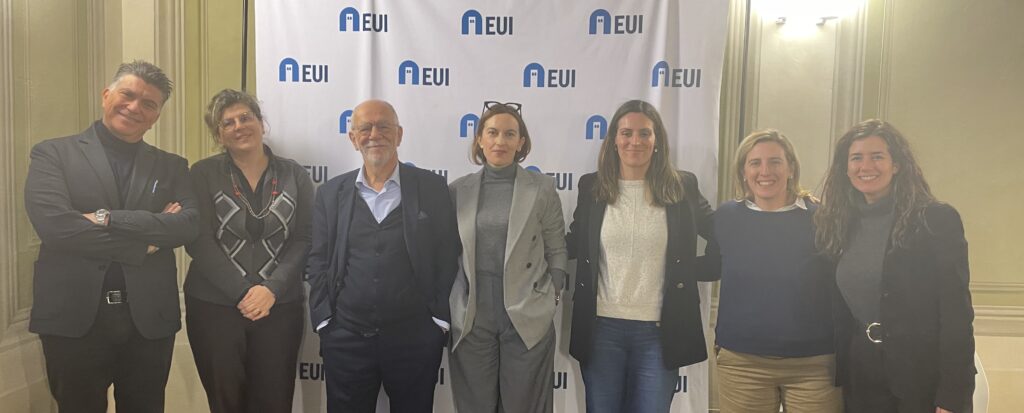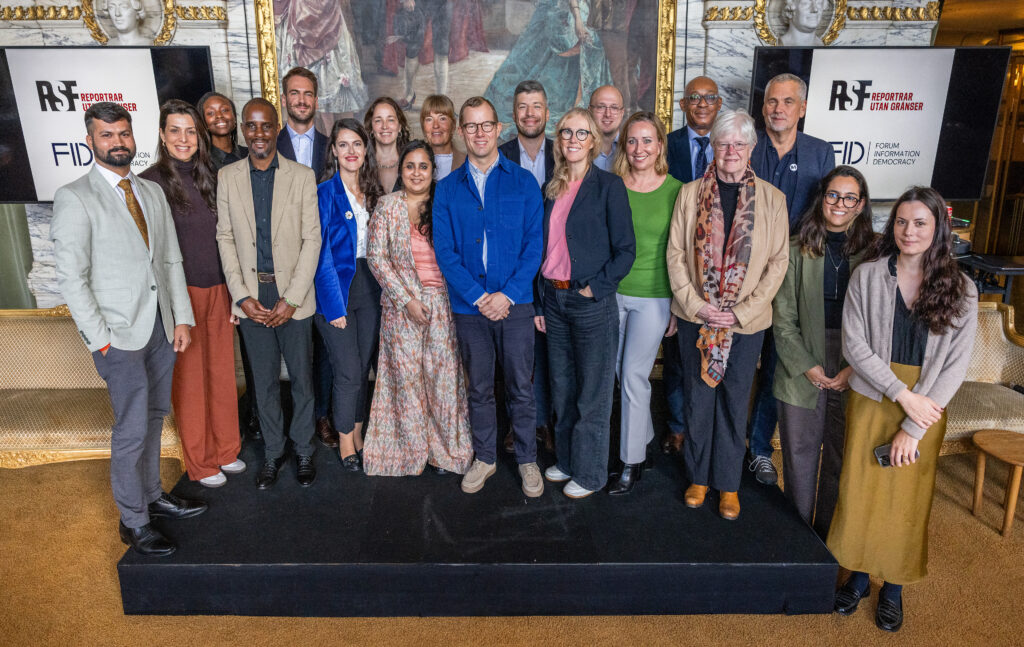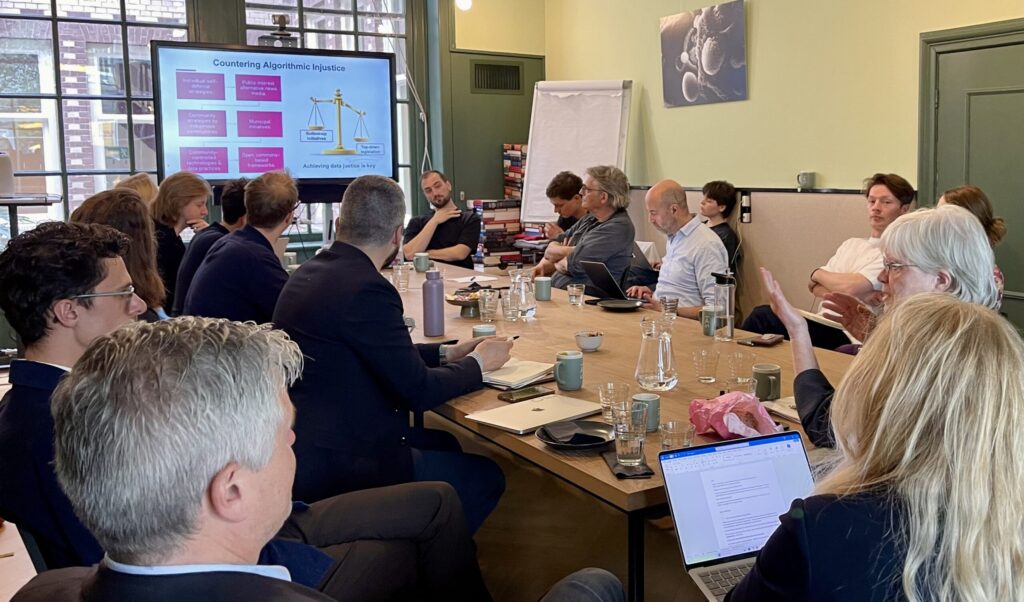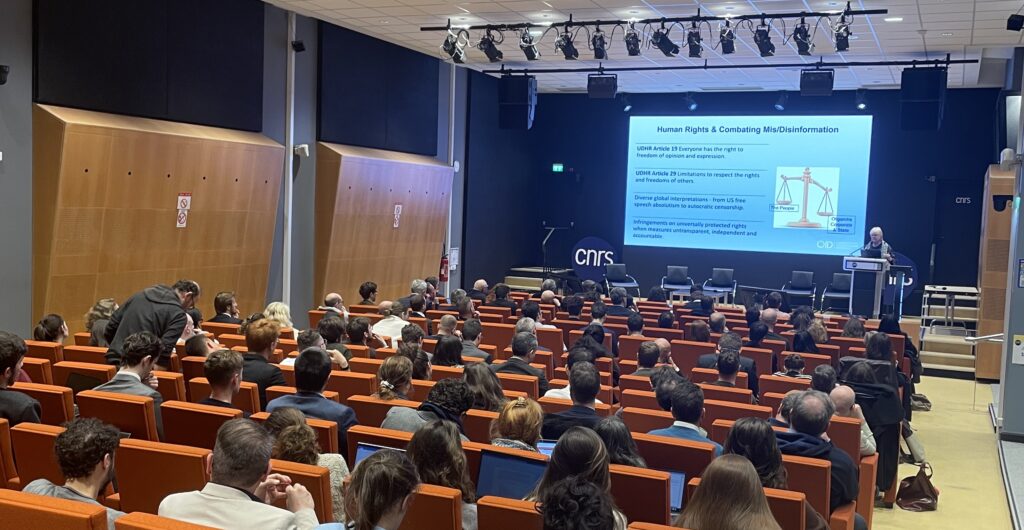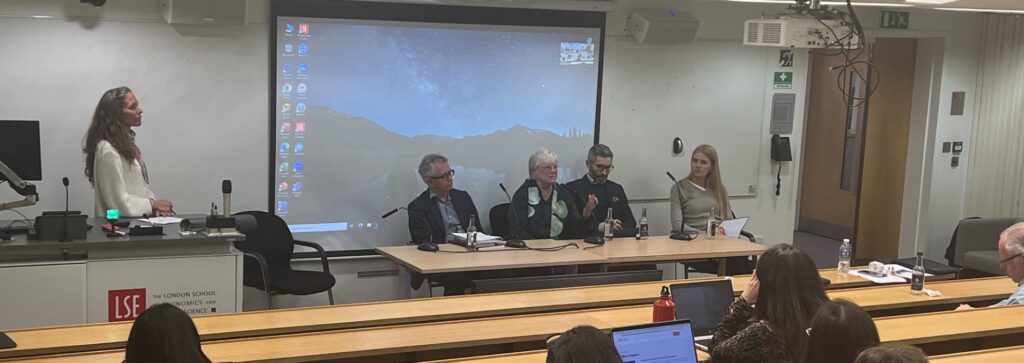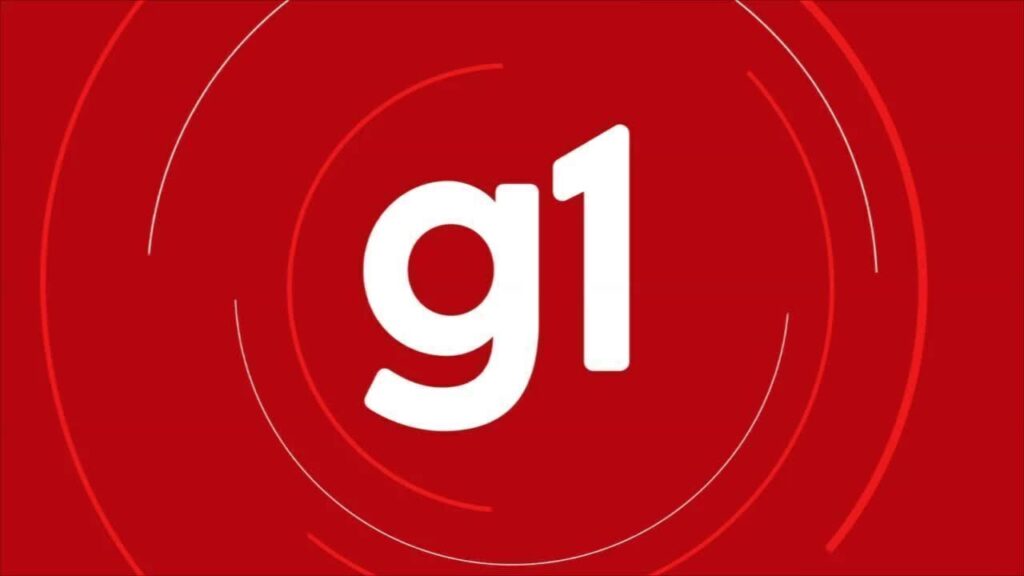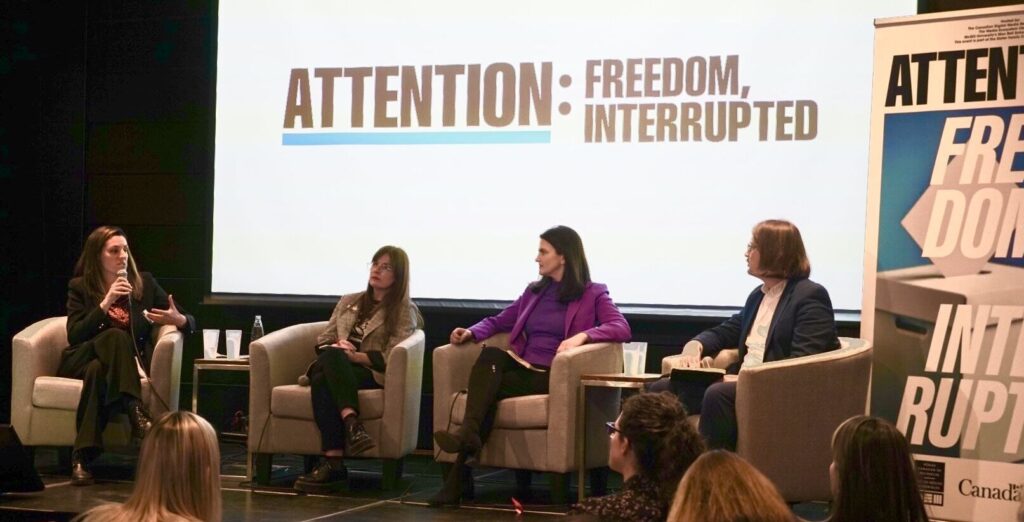On February 14, 2025, in partnership with the European University Institute (EUI), the Observatory on Information and Democracy (OID) presented its report at the beautiful Theatre of Badia Fiesolana in Florence. Organized by the Centre for Media Pluralism and Media Freedom, the event gathered academics and experts to discuss the evolving role of news media, information integrity, and the public sphere in modern democracies.
Key Themes and Discussions
The event centered on the findings of the Observatory on Information and Democracy’s comprehensive report, Information Ecosystems and Troubled Democracy: A Global Synthesis of the State of Knowledge on News Media, AI and Data Governance. As the venue is one of the leading Media research institutes in Europe, the OID’s presentation focused on the chapter News Media, Information Integrity and the Public Sphere. The event provided an in-depth review of how legacy and online news media are transforming, the motivations behind the production and consumption of accurate versus false information, and potential strategies for fostering healthier information ecosystems.
Event Highlights
Introducing the Observatory and the Final Report
Pier Luigi Parcu (EUI) and Iris Boyer (Head of the Observatory, Forum on Information and Democracy) introduced the Observatory’s mission and its latest report. They highlighted the rigorous research methodology, which involved synthesizing over 3,000 sources and consulting more than 400 stakeholders across academia, civil society, public administration, and industry to collectively address 39 research questions
“The relationship between information ecosystems and democracy is highly complex and bidirectional: information ecosystems impact the democratic crisis and the democratic crisis impact information ecosystems.” – Pier Luigi Parcu, OID steering committee member and Director of the Centre for Media Pluralism and Media Freedom
“ Information ecosystems should be treated as complex systems with interdependent components. Just like biodiversity. If we fail to consider and research the interplay of people, practices, values, institutions and technologies when assessing the effect of a changing information ecosystem on democracy, we cannot improve the multi-layered arsenal of research to intervention policy needed to tackle complex issues like disinformation from detection to moderation to inoculation” – Iris Boyer, Head of the OID
Panel 1: News Media and the Public Sphere – The European Case
Chaired by Elda Brogi (EUI), this panel focused on news media consumption, trust, and avoidance patterns within the European Union. Speakers included Robin Mansell (London School of Economics), Marta Cantero (EUI), and Andrea Simoncini (Università di Firenze). They compared European media trends with global findings and discussed the challenges of ensuring media pluralism in an era of increasing news avoidance and distrust.
“In a way, the focus on disinformation impacts is diverting us from the power imbalance between platforms and the media (and society).” – Andrea Simoncini, Professor of Constitutional Law at the University of Florence.
Panel 2: Information Integrity – Future Policy Approaches
Moderated by Iva Nenadic (EUI), this panel explored innovative policy strategies to address misinformation, political polarization, and information integrity challenges. Panelists Flavia Durach (National University for Political Studies and Public Administration, Bucharest) and Paula Gori (European Digital Media Observatory) shared insights on regulatory approaches and resilience-building strategies to enhance trust in media.
“There is a need to have a global discussion on information integrity. With its focus on the global majority and global focus, this report provides the basis for having these discussions – and it shows us where we’re lagging behind.” – Iva Nenadic, Scientific Coordinator of the EUI Centre for Media Pluralism and Media Freedom
Key Takeaways
Some insights from the two panels concerned:
- Research:
- One-sided research designs – research on the effects of mis/disinformation effects based on multiple (traditional) models (hypodermic/inoculation, selective exposure, agenda setting/framing, behavioral economics/cognition).
- More recent mediation (relational) models focus on audience agency, and context.
- Different models give different answers on impact of weaponization of information and people’s resilience.
- Algorithms segregate and personalize, but do not fully explain polarization
- Similarly to our Berlin event, one thing stood out: the lack of research on actors’ motivations to create mis/disinformation.
- Media and platforms:
- Power asymmetries between news media and big tech is visible across regions
- News organization dependence on digital platforms varies
- We also see changing professional standards and varying success with new revenue models such as subscription models.
- Policy:
- Strengthen bargaining power of news organizations.
- Compensate publishers for content that platforms host.
- Financially support news media (e.g. tax on digital advertising)
- Promote the independence of Public Service Media
Looking Ahead
After our visit to Berlin, this event continues the Observatory’s Global Engagement Roadshow, a series of activation events aimed at fostering dialogue and disseminating research findings. With continued collaboration between academic institutions, civil society organizations, and policymakers, the Observatory aims to drive impactful change in the information landscape and strengthen democratic resilience worldwide.
